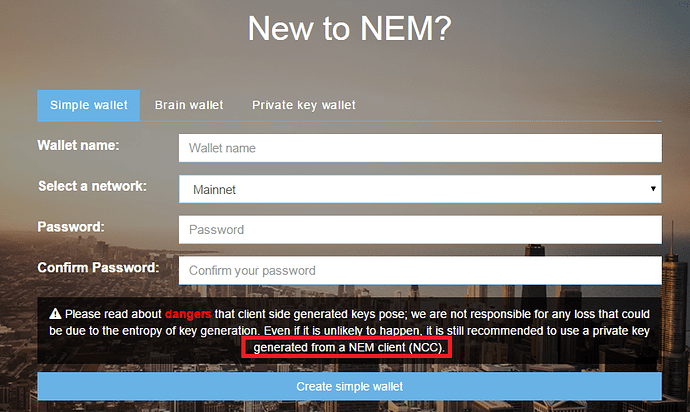When attempting to create a simple wallet in the nanowallet, this warning message is displayed:
" Please read about dangers that client side generated keys pose; we are not responsible for any loss that could be due to the entropy of key generation. Even if it is unlikely to happen, it is still recommended to use a private key generated from a NEM client (NCC)"
Is it better then to use the NCC instead? If so, why isn’t it available for download on the same page as the nanowallet? Must I find an old version NCC and use it to generate my new private keys for the nanowallet as recommended by the warning message? And the nanowallet is Beta 1.4.13. Does this mean it’s beta software and to be only used at one’s own risk? If so, where’s the NCC for download if we want the safest option? This is confusing and misleading, especially for new users. Why does NEM point users to the nanowallet instead of the NCC if the nanowallet is in beta and NCC is the safest means to create private keys?
Please clarify.

